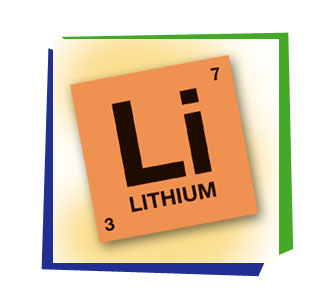
Calcium should be added to routine laboratory test monitoring of patients taking lithium.
Hypothyroidism and impaired renal function are well-known adverse effects of long-term lithium treatment. Lithium has also been associated with hypercalcemia, although its exact prevalence and its relationship to duration of lithium exposure are uncertain.
In a cross-sectional study, investigators examined calcium and parathyroid hormone (PTH) levels in 112 adult patients (mean age, 49; 37% men) with bipolar I or II disorder. Fifty-eight patients had been taking lithium for at least 1 month (median, 36 months; mean daily dose, 731.9 mg), and 54 had no lifetime exposure to lithium.
Lithium-exposed patients had significantly higher levels of ionized calcium and PTH than nonexposed patients and had higher rates of hypercalcemia (defined as ionized calcium >1.32 mmol/L; 24.1% vs. 5.6%) and hyperparathyroidism (8.6% vs. 0%). Higher ionized calcium levels, but not PTH levels, were significantly related to greater duration of lithium exposure. Hyperparathyroidism was seen after as little as 3 months of lithium exposure. Consistent with prior findings, lithium-exposed patients had higher rates of hypothyroidism (29.3% vs. 11.1%).
COMMENT
Routine lithium monitoring does not usually include calcium. These findings suggest that ionized calcium levels be added both to baseline laboratory testing before initiation of lithium and to ongoing monitoring and that testing of parathyroid hormone levels be added if hypercalcemia develops.





 留言列表
留言列表
 線上藥物查詢
線上藥物查詢 